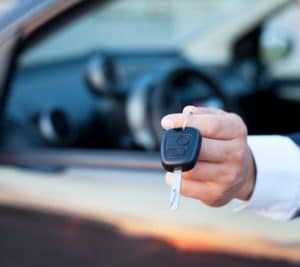Part of preparing yourself for a commercial vehicle road test is to know what to expect when the day finally arrives. What will you be told to do? What will the examiner expect of you? Think of it like you’re preparing for a battle and you must do your homework to know who you’re up against. Only that this time your opponent is the road test and to win the battle you must ace that road test. Just a disclaimer, the examiner is the referee and not your opponent. Like a strategic soldier preparing for battle, knowing what to expect is your secret weapon. You don’t want any surprises, do you?
 The Meetup- Meeting up with your examiner is definitely the easiest part of your road test. You’re expected to show up with your valid documents to be processed for the test. Before proceeding any further, the examiner will probably ask you or your instructor if you’re ready for the road test. Most examiners like to point out the statistics like how many students fail in a week to emphasize the importance of adequate preparation. But don’t let that make you nervous, it is just standard procedure!
The Meetup- Meeting up with your examiner is definitely the easiest part of your road test. You’re expected to show up with your valid documents to be processed for the test. Before proceeding any further, the examiner will probably ask you or your instructor if you’re ready for the road test. Most examiners like to point out the statistics like how many students fail in a week to emphasize the importance of adequate preparation. But don’t let that make you nervous, it is just standard procedure!
Pre-trip Inspection/Air Brake Test- As long as you’re doing a commercial vehicle road test, you can’t escape this stage of the test. If you will not do the pre-trip inspection, you will do the air brake test. The preference will depend on your state exam mode or commercial vehicle of choice. Usually, the air brake test is done by those who want to drive commercial buses and occasionally trucks or trailers with air brakes. However, the pre-trip inspection is more common in most states. Regardless, the examiner will expect you to know the essential parts of your truck, trailer or bus and how to conduct a safety analysis. For the pre-inspection, the examiner will test you on the light check, coupling system, trailer suspension, driver’s door fuel area, in-cab inspection and engine compartment. If you’re doing the air braking test, you are expected to be familiar with all the 3 different braking systems; emergency brake, service brake and parking brake.
The Yard Skills Test- The yard skills test is mostly about driving through cones or performing backing maneuvers while you try to gain the lowest points possible. Expect the examiner to ask you to drive straight through cones at specific points of the yard. The closer you get to the cones without touching them, the fewer points you accumulate. In this scenario, points are something you should avoid since gaining a lot of points can make you fail. After you have driven forward without your vehicle touching the cones, be ready to reverse your truck or bus in 4 different maneuvers. For the backing maneuvers, you will be asked to complete parallel parking, alley docking, offset backing and straight line backing without touching the cones. Keep in mind when you’re parallel parking you can be asked to do both the conventional and driver-side parallel parking procedure while for the offset backing expect it to be done on both the right and left side.
The Road Test- The final home stretch is the actual road test. The examiner will take you to public roads to see how you will counter unpredictable situations in the real world. A typical road test will last between 40 to 70 minutes long. At this point, the examiner won’t say much expect where to turn and where to go. But don’t be fooled, the examiner will be watching you closely to monitor if you follow the road rules. If you do a stupid mistake like running a red light, don’t be surprised if the examiner fails you. Hence, you have to be mindful of the small things like the speed limit, turn signals, traffic observation, traffic signs and driving within your lane. The examiner will also be on the lookout for non-driving considerations like your demeanor or confidence. Of course, the examiner will not tell you but if you have a panic attack it will come back to bite you. That is why it is very crucial to avoid getting nervous and acting confident as much as possible.
You can bring along your instructor for the road test but he/she cannot tag along for the CDL road test. It will only be you and the examiner on that truck or bus. After the road test, the examiner will inform you if you have passed or failed. Of course, examiners understand that 99 percent of candidates make a few errors during the road test but unless you have made automatic failure mistakes or accumulated too many points, you have nothing to worry about. The good thing is that even if you fail, it is very unlikely that you will fail all the 3 phases of the road test. For instance, you can fail the pre-inspection and pass the yards skills test and the road test. However, you won’t get that commercial driving license until you pass all the road testing stages.
